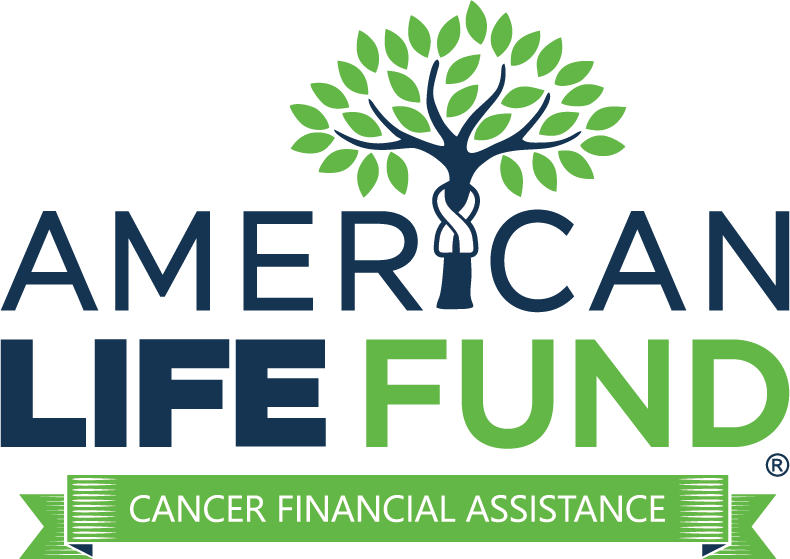Financial concerns add stress to an already challenging situation when faced with a life-threatening illness. What if you could access a portion of your life insurance policy’s death benefit to help alleviate those pressures?That’s where viatical settlements come into play. This article explores the ins and outs of viatical life settlements, their benefits and risks, and how they compare to other alternatives, helping you make informed decisions about this financial option related to a viatical settlement.
Viatical Settlement Key Takeaways
- Viatical settlements offer financial relief to policyholders with serious illnesses by providing immediate funds.
- To be eligible for a viatical, you must have a life-threatening illness, an estimated life expectancy of two years or less, and a life insurance policy with a face value of $150k or more.
- The process of viatical settlements is regulated and involves reputable brokers to ensure a fair and transparent transaction for sellers and buyers.
- Viatical settlements offer immediate cash value for medical expenses and living costs, enhancing life quality and alleviating financial stress during such challenging times.
- Viatical settlements differ from life settlements because they cater to individuals with a shorter life expectancy due to serious illnesses.
- Risks associated with viatical settlements include uncertainty of life expectancy for buyers.
- State laws regulate viatical life settlements, and the process involves legal contracts to protect the interests of all parties involved.
- Choosing a reputable viatical settlement provider or broker significantly impacts the process and outcome of the settlement.
- Viaticals are a lifeline for policyholders facing financial pressures due to life-threatening illnesses, allowing them to focus on their well-being and medical care.
Get A Viatical Quote Today
Understanding Viatical Settlements
Viatical settlements serve as a financial lifeline for policyholders facing life-threatening illnesses, allowing them to sell their life insurance policy to a third party for a lump sum cash payment. This arrangement provides immediate financial assistance during a critical illness and benefits policyholders by offering immediate cash value for medical expenses, enhancing their quality of life, and alleviating financial pressure due to unaffordable premiums.
Selling a life insurance policy may seem unconventional, yet the viatical settlement process is crafted to be clear and transparent. From determining eligibility to receiving an offer and closing the settlement, each process step is carefully regulated to protect both the policyholder and the buyer.
Definition and Purpose
A viatical settlement allows a terminally ill individual to sell their life insurance policy for immediate cash to a buyer, who then takes over premium payments and receives the death benefit upon the seller’s death. The owner sells their life insurance contract to a viatical settlement provider who then pays them a portion of the face value of the policy. The policyholder must have a serious illness and meet other criteria related to age, policy value, and policy type, among other considerations. Life settlement providers evaluate these factors to determine the policyholder’s eligibility for a viatical settlement agreement.
The intention of a viatical settlement is to supply immediate capital to a life insurance policyholder in exchange for transferring their policy to an investor. This arrangement allows the policyholder to obtain funds during a serious illness to cover medical costs or any other needs.
Benefits for Policyholders
One of the most significant benefits of a viatical settlement is immediate cash to cover various medical expenses, such as urgent medical bills, prescription costs, alternative treatments, participation in clinical trials, and living expenses associated with medical care.
Another advantage of a viatical settlement is its ability to enhance the quality of life for the policyholder. By providing immediate cash to address financial concerns, viatical settlements help facilitate treatments or experiences that promote the policyholder’s well-being, thus improving their overall quality of life.
A viatical transaction offers financial respite from exorbitant premiums by permitting policyholders to sell their life insurance policy for a lump sum of cash, with the viatical settlement provider becoming the policy owner and responsible for paying any future premiums.
See our post for a full list of the benefits of viatical settlements.

Get A Viatical Quote Today
The Viatical Settlement Process
Though navigating the viatical settlement process may appear intimidating, understanding each step simplifies the process. The process typically entails:
- Deciding on a company
- Submitting documentation
- Undergoing underwriting
- Receiving an offer
- Closing the settlement
- Obtaining funds
Choosing the right partner, be it a broker, a provider, or a viatical settlement company, makes a significant difference in both the experience and the outcome of the viatical process.
Application and Documentation
Preparation for the viatical life settlement application process involves collating essential documents like medical records, financial, and personal data. These documents are critical in helping the viatical settlement provider assess the policyholder’s eligibility and determine the appropriate offer for their policy.
Upon submitting the required documentation, the provider will assess the policyholder’s application and, if approved, will issue a letter of declaration verifying the approval. Funds are typically sent to the policyholder within a predefined period, usually within three business days.
Evaluation and Offer
Several critical factors come into play during the evaluation and offer phase of the viatical settlement process. To determine a fair offer, viatical life settlement companies consider:
- The policyholder’s life expectancy
- The face value of the policy
- The premium payments required
The estimated life expectancy is calculated based on the medical information and prognosis of the insured person by a viatical settlement company’s medical underwriter.
By thoroughly evaluating these factors, the viatical settlement provider will make an informed decision about the policyholder’s eligibility and the value of their policy. This determination ensures that the policyholder receives a fair offer in exchange for transferring ownership of their life insurance policy.
See our blog post on viatical settlement valuation for more information.
Closing and Payment
Accepting the offer by the policyholder sets the closing process in motion. The closing phase involves analyzing and signing closing documents, The viatical settlement company transferring the ownership of the policy, and obtaining a lump sum payment. The viatical settlement contract is a legal document binding the viatical life settlement provider and the policyholder. The contract describes the terms of the agreement, such as payment details and cancellation rights.
This lump sum payment provides the policyholder with immediate financial relief, allowing them to focus on their well-being and medical care during a critical time.
Eligibility Criteria for Viatical Settlements
Certain restrictions govern the eligibility for viatical settlements. To qualify, an individual must have a serious illness. Additionally, viatical life settlement companies generally require the policy to have a face-value amount of $150,000 or more. Specific health conditions that may qualify a person for a viatical settlement include Cancer, Alzheimer’s, ALS, dementia, and advanced heart or kidney disease.
Policyholders must understand the eligibility criteria for viatical settlements to make informed decisions about whether this financial option suits their unique circumstances. By meeting the following requirements, policyholders benefit from the viatical settlement by helping alleviate financial pressures and improve their quality of life during a critical illness:
- Health status
- Life expectancy
- Policy value
Health Status and Life Expectancy
Health status and life expectancy play a significant role in determining eligibility for a viatical settlement. The policyholder’s medical condition, diagnosis, and treatment history are required for the application process.
Certain diseases that may qualify a policyholder for a viatical settlement include:
- Cancer
- Alzheimer’s
- ALS
- Dementia
- Advanced Heart or Kidney Disease
By considering these health factors, viatical settlement companies will make better decisions about the eligibility of policyholders and the value of their policies.
Life Insurance Policy Age and Value
In addition to health status and life expectancy, the policy’s age and value are essential in determining eligibility for a viatical settlement. A Viatical settlement broker typically requires a minimum policy age of two years and a minimum policy value usually starting at $150,000. These requirements ensure that the policyholder has adequate coverage and that the settlement amount is proportionate to the investment.
Viatical settlement offers are generally within 30% to 70% of the policy’s value. By meeting policy age and value requirements, policyholders access the financial benefits of a viatical settlement during challenging times.

Get A Viatical Quote Today

Risks and Considerations for Sellers and Buyers
Viatical settlements offer substantial financial relief to policyholders battling life-threatening illnesses. However, acknowledging the risks and considerations for both sellers and buyers in these transactions is equally important.
For sellers, there is a risk of losing life insurance coverage and the possibility that their priorities may shift, potentially influencing their decision to sell. For buyers, the primary risk associated with purchasing a life insurance payment in a viatical settlement is the uncertainty of life expectancy.
Additionally, buyers may face illiquidity risk, as viatical settlement investments may be difficult to sell or redeem before maturity, and risks associated with managing a portfolio of life settlements, such as valuation and carrier risk.
Seller Risks and Considerations
Potential changes in priorities can significantly impact the decision to sell in a viatical settlement. If a person’s priorities change due to alterations in their health condition, financial situation, or personal circumstances, they may reconsider the need for immediate funds and opt to keep their life insurance policy. Consequently, the decision to sell a viatical settlement agreement is highly personal and depends on the policyholder’s specific priorities and circumstances.
Buyer Risks and Considerations
Investing in viatical settlements brings about multiple risks and considerations for buyers. As mentioned earlier, the primary risk is the uncertainty of life expectancy. If the seller surpasses their life expectancy, the time value will diminish the buyer’s returns. On the other hand, if the seller passes away earlier than expected, the buyer would experience a higher return than anticipated.
If the buyer enters a viatical settlement agreement with premiums left to pay, they will be obligated to pay those premiums, resulting in a steady decline of their profits. These risks highlight the importance of thorough research and due diligence when considering an investment in a viatical settlement.
Comparing Viatical Settlements to Life Settlements
Despite sharing similarities, viatical and life settlements cater to different demographics and pay different payouts. Viatical settlements are designed for individuals suffering from a serious or chronic illness.
On the other hand, life settlements are designed for individuals aged 75 or above without significant health issues, who no longer require or can afford their life insurance policy. Payouts for viatical life settlements are generally higher than those for life settlements due to the shorter life expectancy of the policyholder.
Understanding the differences between these two types of settlements can help policyholders determine which option is best suited to their unique circumstances and financial needs.


Alternatives to Viatical Settlements
While viatical settlements can provide significant relief for policyholders with life-threatening illnesses, it’s also worth considering other options. Life settlements, for example, are aimed at healthy senior-aged individuals over 75 who no longer need or can afford their life insurance policy..
It is essential for policyholders to make sure they:
- Weigh the pros and cons of each option
- Consult with a financial advisor to determine the most suitable financial solution
- Make informed decisions
- Alleviate financial pressures during challenging times.
Legal Aspects and Regulation of Viatical Settlements
Legal aspects and regulations governing viatical settlements aim to protect both policyholders and investors. In 1911, the Supreme Court case Grigsby v. set an important legal precedent. The case has become a significant landmark in history. Russell established the concept of viatical settlements by determining that the ownership of a life insurance policy to a third-party in exchange for money to the insured was valid. . This case recognized life insurance policies as assets that could be bought and sold, paving the way for viatical settlements.
State regulations for viatical settlements vary in the U.S., while Alabama, Missouri, South Carolina, South Dakota, Wyoming, and Washington, D.C. have no regulations in place. State insurance commissioners use various measures to regulate viatical settlement companies, such as licensing, verifying coverage, establishing standards and regulations, and taking enforcement actions against those breaking the regulations.
These legal aspects and regulations ensure a fair and transparent process for all parties involved in viatical life settlements.
The “Viatical Settlements Model Act” from the NAIC outlines regulations and standards for viatical settlements. The purpose of this Act is to ensure that viatical settlement transactions are regulated to some extent in a uniform manner and that viatical settlement brokers and viatical settlement providers are licensed and subject to regulatory oversight.
Choosing the Right Viatical Settlement Provider
Choosing the appropriate viatical settlement provider improves the process’s experience and outcome. Policyholders can work with brokers, providers, or viatical settlement companies to sell their life insurance policy.
While providers purchase the policy from the policyholder and become the new owner and beneficiary, brokers act on behalf of the policyholder to negotiate the sale of the life insurance policy. By carefully considering their options and working with a trusted viatical settlement company, policyholders will confidently pass through the viatical settlement process and achieve the best possible outcome for their unique circumstances.
Summary
Viatical settlements offer a valuable financial solution for policyholders facing serious illnesses, providing immediate cash for medical expenses, improved quality of life, and financial relief from unaffordable premiums. Policyholders will make better-informed decisions about this financial option during challenging times by understanding the eligibility criteria, process, risks, and legal aspects of viatical settlements and considering alternative options. With the right guidance and support, a viatical life settlement can be a lifeline that alleviates financial pressures and allows policyholders to focus on their well-being and medical care.
Frequently Asked Questions






